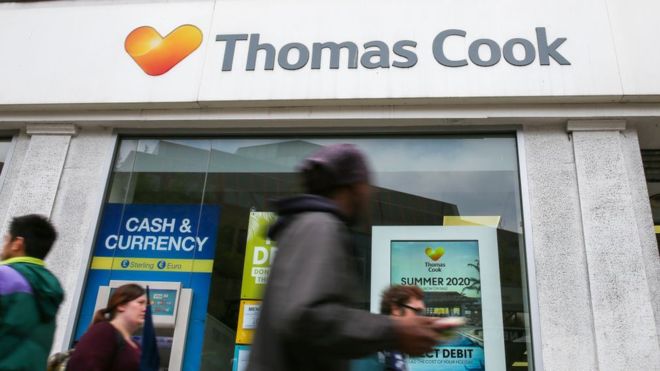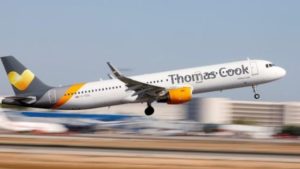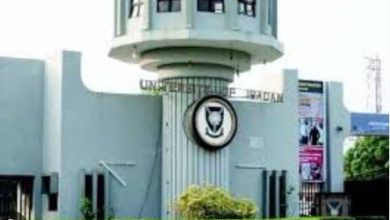
- Troubled travel company Thomas Cook is in £750m rescue talks with banks and its largest shareholder, Fosun.
Troubled travel company Thomas Cook is in £750m rescue talks with banks and its largest shareholder, Fosun.
The measures, which have not been finalised, would see the Chinese investor buy the firm’s tour business.
Thomas Cook’s chief executive, Peter Fankhauser, said the proposal was “not the outcome any of us wanted” but insisted it was “pragmatic”.
He told the BBC that customers did not need to worry because their holiday bookings were “secure”.
Is my holiday safe?
“They can book with us without worries,” Mr Fankhauser said. “We have enough resources to operate our business so they can enjoy their holidays with us.”
And this cash injection would give the group enough money to trade through to the end of next year and invest for the future, Thomas Cook said.
When store closures and cost-cutting measures were announced at the firm earlier this year, Thomas Cook said holidaymakers could have “complete confidence” because it is an ATOL-protected business.
Protection under the ATOL – or
Troubled travel company Thomas Cook is in £750m rescue talks with banks and its largest shareholder, Fosun.
The measures, which have not been finalised, would see the Chinese investor buy the firm’s tour business.
Thomas Cook’s chief executive, Peter Fankhauser, said the proposal was “not the outcome any of us wanted” but insisted it was “pragmatic”.
He told the BBC that customers did not need to worry because their holiday bookings were “secure”.
Is my holiday safe?
“They can book with us without worries,” Mr Fankhauser said. “We have enough resources to operate our business so they can enjoy their holidays with us.”
And this cash injection would give the group enough money to trade through to the end of next year and invest for the future, Thomas Cook said.
When store closures and cost-cutting measures were announced at the firm earlier this year, Thomas Cook said holidaymakers could have “complete confidence” because it is an ATOL-protected business.
Protection under the ATOL – or Air Travel Organiser’s Licence – scheme means UK travellers on an air package holidays do not lose their money or become stranded abroad if a travel agent collapses.
It also covers many charter flights and means that, if the operator collapses while people are away, they can finish their holiday and be flown home at no extra cost.
- scheme means UK travellers on an air package holidays do not lose their money or become stranded abroad if a travel agent collapses.
It also covers many charter flights and means that, if the operator collapses while people are away, they can finish their holiday and be flown home at no extra cost.
Why does Thomas Cook need the money?
The travel agent has found it difficult to maintain a presence on the High Street in the face of increased online competition. Last year, it also issued a number of profit warnings blaming a heatwave for a dip in summer holiday bookings.
It launched a strategic review in February, but since then, dwindling bookings and uncertainty surrounding Brexit have contributed to a deterioration in the market. In March, the firm announced plans to close 21 stores, costing more than 300 jobs, and in May, it revealed a £1.5bn half-year loss.
Thomas Cook said it was trying to combat those challenges with a “rigorous focus on cost” and by “delivering a stronger holiday offering to customers through high quality, higher-margin hotels”.
The travel firm had already announced plans to slash costs, axing 150 roles from its head office in Peterborough, in the face of tough trading conditions and higher fuel expenses.
On Friday, Thomas Cook said the European travel market had become “progressively more challenging” as it painted a bleak picture for the second half of the year, blaming an “uncertain customer environment” for “intense competition”.
That has hit the firm’s finances and made it difficult to sell its airline or tour business to generate some cash.
As a result, the group has been forced to enter into talks with its banks and Fosun, which will own a significant majority of the travel company’s tour operator and a large minority stake in its airline if the deal goes ahead.

Is it a good deal?
Mr Fankhauser told the BBC’s Today programme that “considering all options we had on the table”, the deal was the “best available” choice.
Responding to a suggestion that the proposed deal was a last resort, he said: “This is a very good option to secure the business and to put the business on a solid financial foot for the future.”
Earlier, in a statement issued by Thomas Cook, Mr Fankhauser said: “While this is not the outcome any of us wanted for our shareholders, this proposal is a pragmatic and responsible solution which provides the means to secure the future of the Thomas Cook business for our customers, our suppliers and our employees.”
What about shareholders?
Thomas Cook said people who currently hold shares in the firm would see the value of their investment “significantly diluted” as a result of the proposed deal.
“Basically, it’s wipe out time” for shareholders, according to Markets.com analyst Neil Wilson.
But Thomas Cook said existing shareholders may be given the option to reinvest in the firm, alongside Fosun, to become creditors.
The proposed rescue deal may even indicate a potential retreat from the stock market for Thomas Cook, in a move that would see the world’s oldest package holiday firm become a private company.
Shares were trading down by about a third on Friday, at just under 9p apiece. The company’s stock price has shed more than 90% of its value in the past year.
What is Fosun?
Fosun is a £74.4bn Chinese investment giant that is listed on the Hong Kong stock exchange. The firm already has an 18% stake in Thomas Cook, but if this deal goes ahead, it would gain a “significant majority” of the firm.
Fosun’s portfolio of companies runs the gamut from insurers to football clubs. It says it operates in three major segments: “health, happiness and wealth”.
The investor said it had “extensive experience” in the global travel industry.
“We are committed investors, with a proven track record of turning around iconic brands, including Club Med and Wolverhampton Wanderers FC,” it said.



